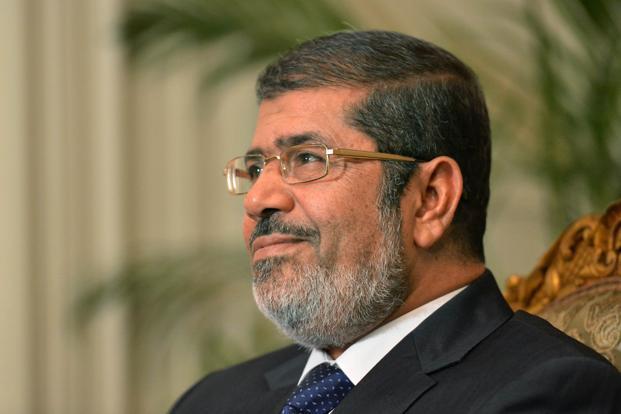
Mr Morsi had the unique privilege of being the first democratically-elected president in the history of Egypt. One of the leaders of Muslim Brotherhood, Morsi came to power in 2012 on the back of the ‘Arab Spring’ that swept away some vestiges of the old authoritarian order that was the hallmark of most Arab countries. However, his government was confronted with umpteen problems in sectors like economy, near-collapse of institutions and a pervasive sense of deep insecurity.
Soon there was an outpouring of public resentment against Morsi’s regime which was in part fueled by the state security forces and their myriad outfits. In just about a year, his then army chief and defence minister Abdul Fatah Al Sisi took control, deposing Mohamed Morsi and installing himself as the country’s new chief executive. In 2014, he got himself ‘elected ‘as Egypt’s President.
Egypt’s democracy was short-lived. The US gave full backing to the military coup in another diabolic intervention against the principle of pluralism and democracy exposing its so called pro-democracy credentials and openly supporting military domination of countries it considers to be strategic allies.
In 1953, the government of Dr Mohammad Mosaddegh, the first democratically-elected prime minister of Iran, was toppled in a CIA-sponsored coup in which British intelligence agency MI6 also was an equal partner. The US, historically, seems to have an addiction to supporting military dictators across the globe — as long as this approach is consistent with its global and sometimes misplaced goals and objectives.
Morsi’s incarceration for six years on unrealistic charges of espionage and leaking state secrets was one of the darkest chapters in the history of a country that has only seen autocratic rule for as long as one can remember. But considering that the coup that removed Morsi in 2013 happened in full view of the whole world that is connected by most modern means of communication, it was most deplorable that there were few voices of anger in countries which pose as champions of democracy and human rights.
What followed the coup was even more reprehensible. Having put Morsi behind bars, the despicable Al Sisi’s regime went on to exterminate hundreds of innocent civilians on charges of supporting Muslim Brotherhood. Thousands were picked up and imprisoned on false charges bypassing the lopsided justice system of the country.
Morsi himself had to endure pain, suffering and torture. According to the British Parliamentary panel, Morsi was in a cage in solitary confinement for 23 hours a day. Food from his house was denied to him and he did not have access to any medical treatment. His family members were denied permission to meet him.
There is some evidence to suggest that the authorities knew his condition was deteriorating. He had a history of heart and liver diseases and was diabetic. Al-Sisi was ‘allowing him to die’.
President Recip Tayyab Erdogan was the lone voice in defence of the dead hero of Egypt. He called him a martyr, adding that history would not forget the brutality of his illegal removal and torture leading to his death.
Sadly but not surprisingly, there was no condemnation of this crime of a leader dying in imprisonment in utter helplessness in the ‘Islamic Republic of Pakistan’!
The death of Morsi would inflame passions in the ‘dark continent’. There is a whiff of fresh air coming from Sudan where in an unprecedented development, people have refused to accept a military regime and have called for restoration of a civilian set-up. That is a beacon of hope for those who nurture dreams of some sort of pluralism and democracy taking roots in Africa. The movement for civilian supremacy in Sudan provides a lesson for people in Pakistan where politics has been plagued for decades because of the many centres of power.
Published in The Express Tribune, June 20th, 2019.
Like Opinion & Editorial on Facebook, follow @ETOpEd on Twitter to receive all updates on all our daily pieces.













COMMENTS
Comments are moderated and generally will be posted if they are on-topic and not abusive.
For more information, please see our Comments FAQ